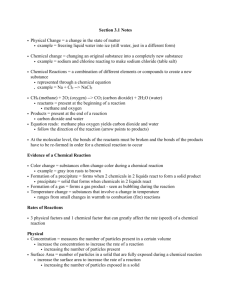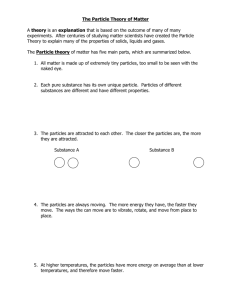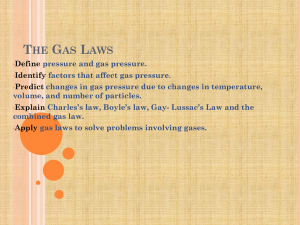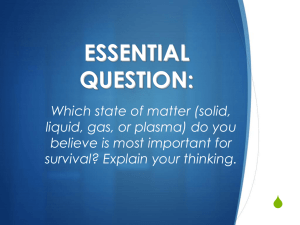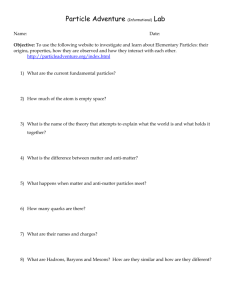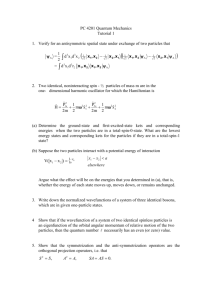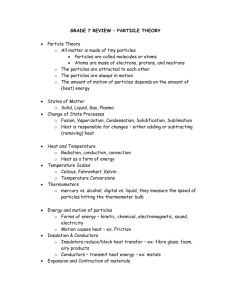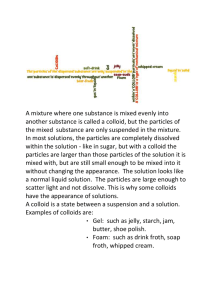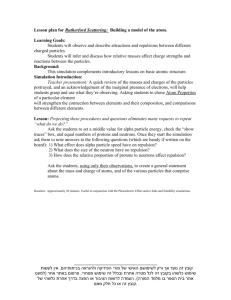Particles
advertisement
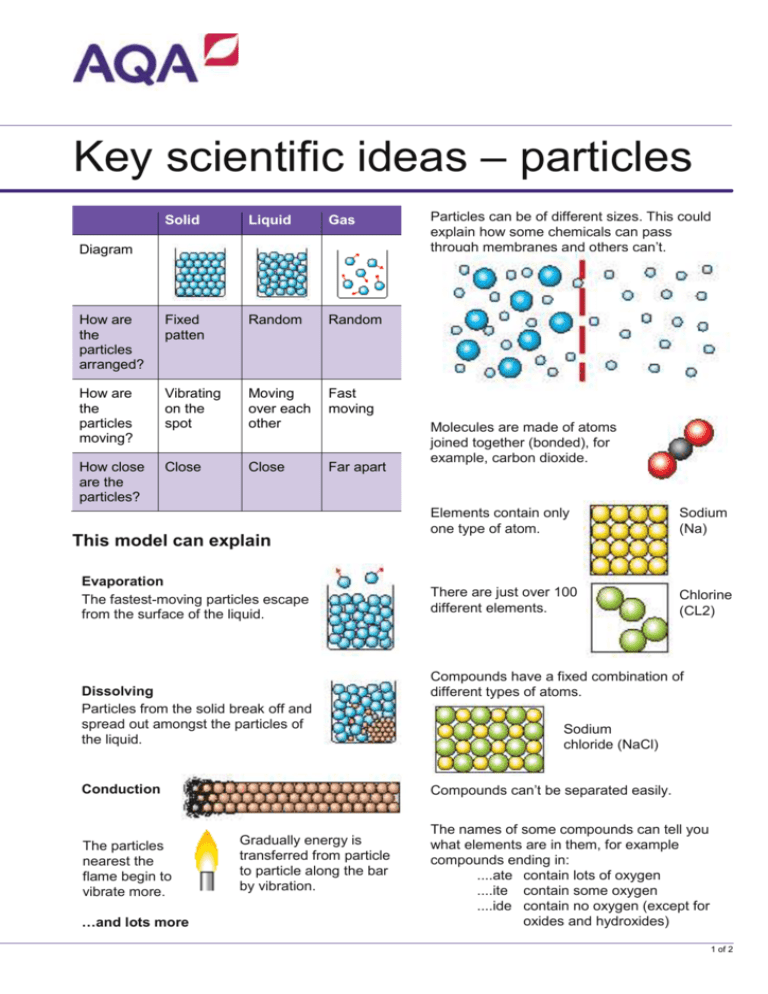
Key scientific ideas – particles Solid Liquid Gas How are the particles arranged? Fixed patten Random Random How are the particles moving? Vibrating on the spot Moving over each other Fast moving How close are the particles? Close Close Far apart Diagram This model can explain Evaporation The fastest-moving particles escape from the surface of the liquid. Dissolving Particles from the solid break off and spread out amongst the particles of the liquid. …and lots more Molecules are made of atoms joined together (bonded), for example, carbon dioxide. Elements contain only one type of atom. Sodium (Na) There are just over 100 different elements. Chlorine (CL2) Compounds have a fixed combination of different types of atoms. Sodium chloride (NaCl) Compounds can’t be separated easily. Conduction The particles nearest the flame begin to vibrate more. Particles can be of different sizes. This could explain how some chemicals can pass through membranes and others can’t. Gradually energy is transferred from particle to particle along the bar by vibration. The names of some compounds can tell you what elements are in them, for example compounds ending in: ....ate contain lots of oxygen ....ite contain some oxygen ....ide contain no oxygen (except for oxides and hydroxides) 1 of 2 Based upon an idea and approach developed by The Cams Hill Science Consortium Reactants Product Smoke Bread and oxygen Toaster Smoke and toast Chemical reactions Reactants Natural gas (Methane Product + Carbon dioxide Oxygen + Water Conservation of mass. In a chemical reaction… ...the products have the same mass as ...no particles get lost or destroyed ... the reactants ...the particles are rearranged ...there are the same number of particles at the end of the reaction as there were in the reaction at the beginning Word equation Methane + oxygen carbon dioxide + water Symbol equation CH4 + 2O2 CO2 + 2H2O Useful vocabulary Particle Atom Compressible Compound Diffusion Decompose Expansion Element Gas pressure Formula Symbol Molecule Mixture AQA Education (AQA) is a registered charity (number 1073334) and a company limited by guarantee registered in England and Wales (number 3644723). Our registered address is AQA, Devas Street, Manchester M15 6EX. Displacement Equation Neutralisation Product Reactant Reactivity Salt 2 of 2
